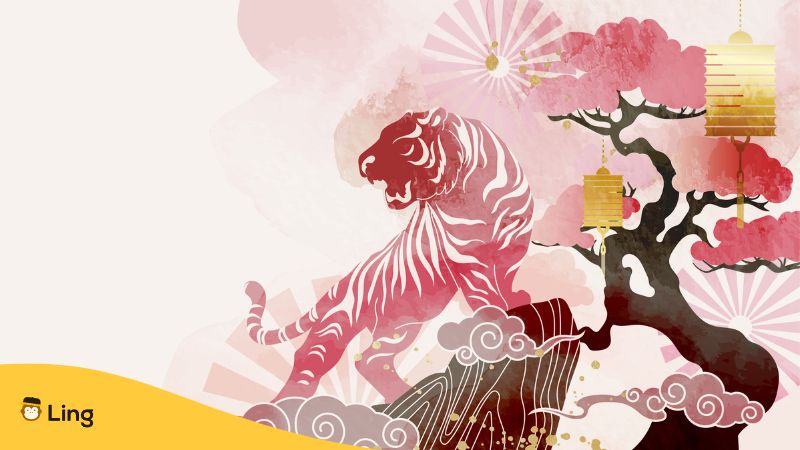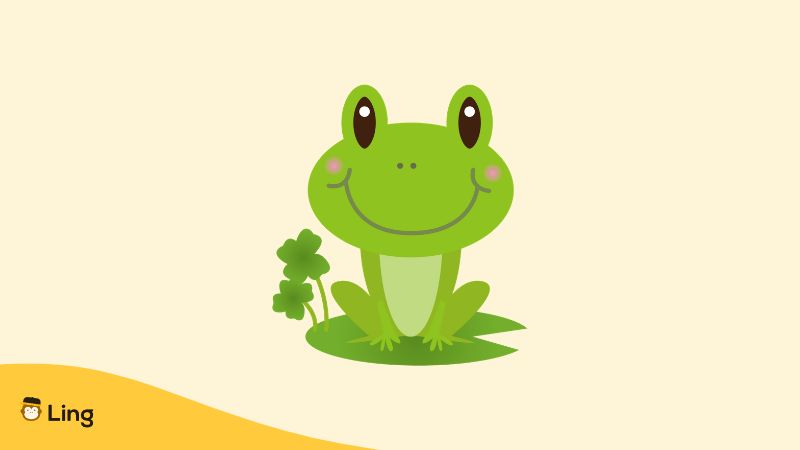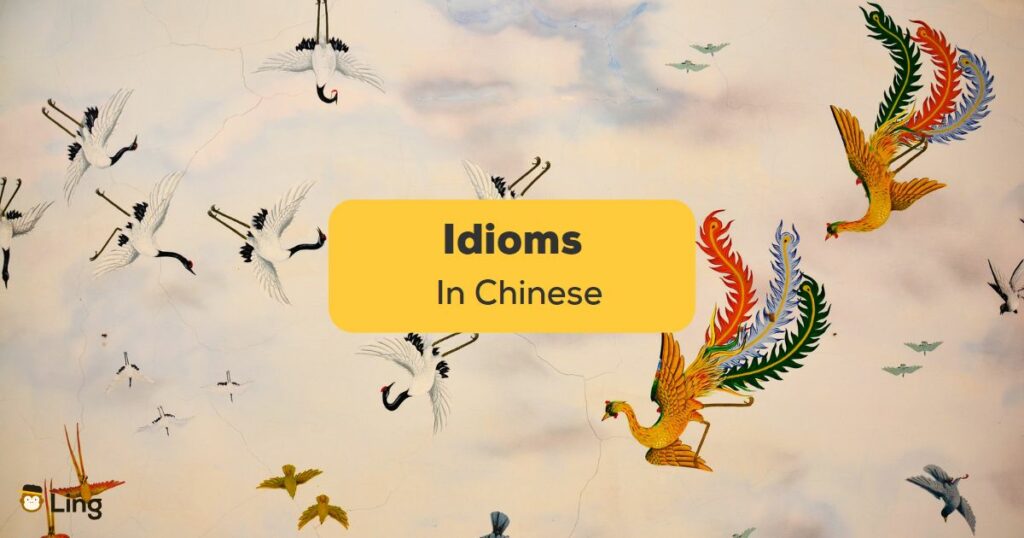Learning Chinese can’t be separated from Chinese idioms because it is an ancient language, and Chinese history holds a lot of wisdom and experience. You’ll also hear many Chinese speakers use Chinese proverbs in daily life. Therefore, knowing some common idioms can come in handy for you as a learner.
But before we get to learning the idioms, let’s learn what chengyu is!
What Is Chengyu?
The literal meaning of 成语 (chéngyŭ) would be “formed words,” but it actually refers to all Chinese idioms. There are around 5,000 sayings in Chinese, usually of four or more characters.
Most Common Chinese Idioms
Here we have the most commonly used Chinese idioms and their meanings:
1. Fake Fox, Powerful Tiger – Hú Jiă Hŭ Wēi
Chinese: 狐假虎威.
This four characters idiom describes a situation where someone wields power because they are supported by a powerful individual.
2. To Give Up Halfway – Bàn Tú ér Fèi
Chinese: 半途而废.
This idiom refers to someone who quits doing something only halfway through. You can use it when someone does something difficult but gives up before finishing it.
3. To Step On Solid Ground – Jiǎo Tà Shí Dì
Chinese: 脚踏实地.
This Chinese idiom means that you work hard, concentrate on the important things, and move forward steadily. Chinese people consider it a very positive expression.

4. Riding A Tiger That Is Difficult To Get Off – Qí Hŭ Nán Xià
Chinese: 骑虎难下.
This chengyu means that sometimes when you commit to something or find yourself in a difficult situation, you have to see it through to the end, even if you don’t want to, because there is no other way.
5. Nine Cows, One Strand Of Cow Hair – Jiǔ Niú Yì Máo
Chinese: 九牛一毛.
This chengyu means that something is so small that it is as insignificant as one strand of cow hair among nine cows.
6. Frog In The Bottom Of A Well – Jĭng Dĭ Zhī Wā
Chinese: 井底之蛙.
This Chinese idiom is used to criticize someone who has a closed mind or a limited outlook on life, someone who believes their small world is the best place possible because they have never ventured out to explore. You can use it literally or figuratively.

7. To Forget Food And Rest – Fèi Qǐn Wàng Shí
Chinese: 废寝忘食.
Chinese speakers don’t use it when someone has poor sleep and eating habits. Instead, they use it when they want to praise someone for their hard work.
8. Mend The Fold After The Sheep Is Lost – Wáng Yáng Bŭ Láo
Chinese: 亡羊补牢.
This idiom implies that it is beneficial to act late and avoid further harm, than not to act at all. It could also mean that it’s never too late to try.
9. To Look This Way And That – Dōng Zhāng Xī Wàng
Chinese: 东张西望.
This idiom can mean two things. To describe someone who is distracted and aimlessly looking around, or to describe someone who is standing still and looking left and right. It’s used when you’re distracted, lost, or looking for something that you’re expecting to see.
10. Suddenly See The Light – Huò Rán Kāi Lǎng
Chinese: 豁然开朗.
Initially, this saying referred to the revitalizing, liberating sensation that comes with seeing a beautiful, open area. Over time, this came to refer to sudden enlightenment, such as the sensation of an “aha!” moment.
11. One Arrow, Two Vultures – Yí Jiàn Shuāng Diāo
Chinese: 一箭双雕.
During the Northern and Southern Dynasties, a general known for his archery skills, Zhangsun Sheng, was sent to accompany a princess to the northwest to marry a Turkic king. The Turkic king was pleasantly surprised by the general’s skills while he was there.
This idiom originally referred to someone who was exceptionally skilled with a bow. But now it has evolved into something similar to the English expression ‘kill two birds with one stone’.

12. To Exert All Your Strength – Quán Lì Yǐ Fù
Chinese: 全力以赴.
The literal translation is “to put all your effort into achieving a goal.” It has a favorable connotation. While it is somewhat formal, it can still be used in everyday conversation. It is essential to keep in mind that this chengyu is typically used for only unfinished actions.
13. Draw A Snake, Add Feet – Huà Shĕ Tiān Zú
Chinese: 画蛇添足.
It refers to ruining the effect of something by overdoing it or including unnecessary details.
The idiom comes from the story of a painter who lost a drawing competition because, despite finishing his picture of a snake first, he kept working by adding feet while the others were still sketching. As a result, he finished after the others and thus lost the competition.
14. Spur Of The Moment – Xīn Xuè Lái Cháo
Chinese: 心血来潮.
Basically, this idiom conjures up images of blood rushing to your heart (in English, you’d say head). It’s the ideal chengyu for telling a thrilling story.
15. A Journey Of A Thousand Mile Starts With A Single Step – Qiān Lĭ Zhī Xíng Shĭ Yú Zú Xià
Chinese: 千里之行始于足下.
This Chinese idiom is also well-known in English. It means that even the most difficult task has a beginning and that if you want to achieve your goal, you must start and stick with it.
16. Reading A Thousand Books Is Not Equal To Traveling A Thousand Mile – Dú Wàn Juàn Shū Bù Rú Xíng Wàn Lĭ Lù
Chinese: 读万卷书不如行万里路.
Here is a saying that translates well into English. The implication is clear: experience is a lot more precious than classroom learning.
Start Learning Chinese With Ling!
Having read this blog post, you know a bunch of cool Chinese idioms now! If you’re looking for a language resource to learn the Chinese language, try Ling for free today!
If you want to learn Chinese or other 60+ languages offered in the app, Ling is here for you!
Ling offers more than 60 foreign language courses, including Chinese! All you have to do is download the app on your mobile device to start learning Chinese right away!
If you’re wondering what you can do with Ling, you can learn how to write Chinese characters, listen to native Chinese speakers repeat their pronunciation, and do various mini-activities to learn Chinese vocabulary and phrases. You can always review what you have learned. Last but not least, you can practice your pronunciation and speaking skills by conversing with chatbots.
By the way, don’t forget to visit Ling’s Chinese blog weekly to learn more about Chinese culture and language! You might want to check out our articles about Chinese poetry and religion.
Download the Ling app from Google Play Store or Apple App Store now, and start learning Chinese right now!


























